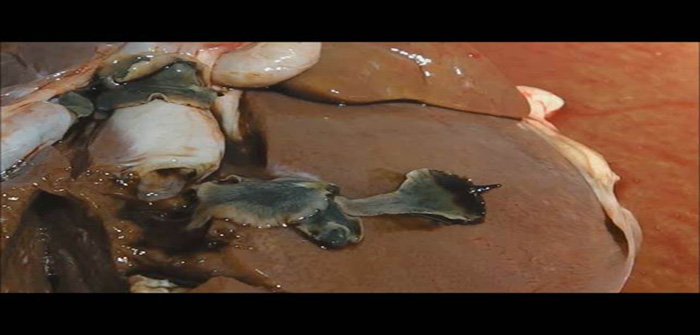The hot, dry summer has impacted parasite infectivity on farm, with both positive and negative effects. The NADIS August Parasite Forecast, sponsored by Boehringer Ingelheim, alerts farmers to continue vigilance in youngstock for signs of productivity-limiting worm burdens while, for many areas, the fluke risk this autumn may be lower than usual.
Sioned Timothy, ruminant technical manager at Boehringer Ingelheim, sponsor of the NADIS Parasite Forecast, advises farmers that any sheep or cattle infected by juvenile fluke at turnout could, by late summer, be carrying adult fluke and shedding eggs onto pasture.
Based on average rainfall and temperature for the months of May to June this year, NADIS is predicting a moderate risk of disease in the north, with a low risk in all other areas.
“This will come as some relief to livestock farmers, as productivity losses from fluke infections will be considerably reduced,” said Ms Timothy.
“However, where conditions have been conducive to the parasite’s lifecycle (warm and wet) acute fluke disease may occur at any time from late summer onwards. Farmers should still be alert to the signs of fluke infection and be prepared to treat sheep and cattle if required.”
Signs of fluke infection include: general dullness, anaemia and shortness of breath, weight loss, and failure to meet average daily liveweight gain targets.
In sheep particularly, a build-up of fluid under the jaw (bottle jaw) is a clear sign of infection. Any sheep found dead should be investigated, as other animals in the flock may be affected by acute fluke disease and require urgent treatment. Identifying high-risk fluke pastures and avoiding these during periods of high challenge can reduce liver fluke disease.
Faecal egg counts (FECs) should not be relied upon for diagnosis of acute disease since they cannot detect immature fluke, sais Ms Timothy.
However, FECs can be used to detect chronic infection (from adult fluke) in individuals or groups of animals using a pooled sample. Farmers should work with their vet or animal health advisor to determine the most appropriate test and consider treatment efficacy testing, particularly in areas with known resistance to some flukicides.
In sheep, where acute fluke is likely, triclabendazole is the only treatment available to remove the juvenile parasites which cause the disease. In cattle, acute fluke disease is less frequently seen and farmers could consider using alternatives to triclabendazole to reduce selection for resistance. Other flukicides, such as those containing nitroxynil (TRODAX®) will treat fluke from eight weeks post infection.
Contamination of sheep pastures with roundworm larvae usually peaks over the summer months, falling off in late summer and autumn. However, this summer’s hot, dry conditions are likely to have increased larval mortality and therefore most sheep flocks should have reduced disease risk going into autumn.
Ms Timothy added: “While most sheep will experience lower levels of worm challenge this grazing season, groups of lambs grazing contaminated pastures may still be at risk. Weaning can provide an opportunity to reduce risk of disease in these animals through a combination of anthelmintics and grazing strategies.”


